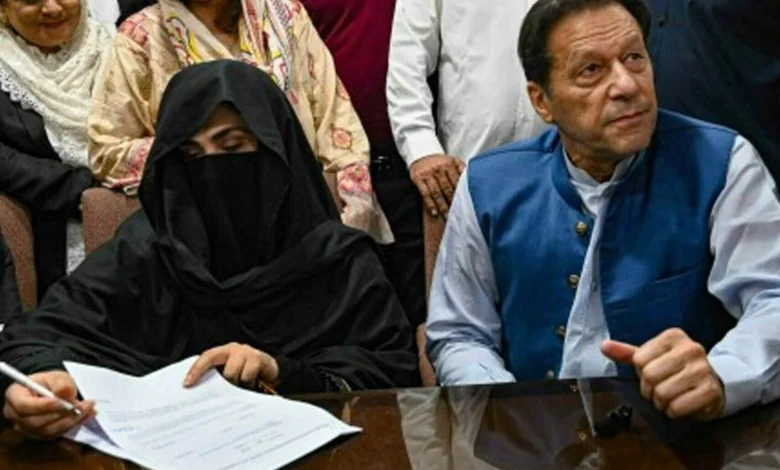
Islamabad Court Suspends Imran Khan and Bushra Bibi’s Sentences in Iddat Case, Orders Release
An Islamabad district and sessions court on Saturday suspended the sentences of Pakistan Tehreek-i-Insaf founder and former Prime Minister Imran Khan, along with his wife Bushra Bibi. The court, in its brief decision, declared the couple innocent and ordered their release unless they were detained in another case.
The verdict was announced by Additional district and sessions judge (ADSJ) Afzal Majoka. Imran Khan and Bushra Bibi had been convicted on February 3, just days before general elections, based on a complaint by Bushra Bibi’s ex-husband, Khawar Fareed Maneka. The complaint alleged that the couple had contracted marriage during Bushra Bibi’s Iddat period.
Previously, the case was being heard by District and Sessions Judge Shahrukh Arjumand, who reserved the verdict in May but later sought a transfer due to recusal requests from Maneka. Subsequently, ADSJ Majoka took over the case.
The court’s decision follows criticism from civil society, women activists, and lawyers over the initial sentencing of seven years in jail and fines imposed on Imran Khan and Bushra Bibi by Senior civil judge Qudratullah.
During the recent hearing, Maneka’s lawyer Advocate Zahid Asif mentioned Imran’s legal team’s intention to bring witnesses, to which he expressed no objection. However, he criticized Imran for allegedly blaming Bushra Bibi and disregarding her sacrifices.
In response, ADSJ Majoka emphasized that both parties shared responsibility, dismissing claims that the marriage occurred after the completion of Iddat. He also acknowledged legal arguments concerning the marriage’s validity under Islamic law.
Imran Khan’s counsel Salman Akram Raja argued against the legal grounds of the charges, citing the Muslim Family Laws Ordinance 1961 and emphasizing that the marriage could not be deemed fraudulent.
After concluding arguments, the court reserved its verdict.
Imran and Bushra were charged under Pakistan Penal Code (PPC) Section 496 for allegedly engaging in a marriage ceremony without lawful procedures during the Iddat period. The Islamabad High Court (IHC) had previously halted proceedings and later dropped Section 496-B from the charges.
The case has drawn significant attention due to its political implications and legal intricacies regarding Islamic marital laws in Pakistan.






